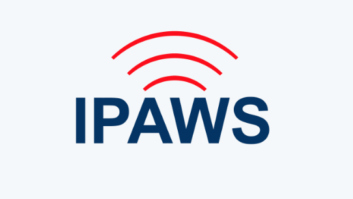WASHINGTON — Travis LeBlanc’s return to private law practice brings a new perspective on Washington bureaucracy, following his stints with several federal government agencies.

Travis LeBlanc. During his time at the FCC, he said, he prioritized public safety. “This does not mean, however, that we ignore commercial complaints. But, first and foremost, we have to ensure that the public is protected.”
The former chief of the FCC Enforcement Bureau has joined the law firm Boies Schiller Flexner as a partner. LeBlanc splits his time between offices in Washington and Palo Alto, Calif., advising clients on telecommunications, crisis response, privacy, cybersecurity and the regulation of “emerging and disruptive” technologies.
The former California prosecutor led FCC enforcement from 2014 until early this year. His résumé includes service under the Obama administration in the U.S. Justice Department’s Office of Legal Counsel. New FCC Chairman Ajit Pai designated Michael Carowitz as acting chief of the Enforcement Bureau.
FIELD OFFICE DEBATE
LeBlanc, 39, rose to notoriety in part because of huge fines issued during his time in FCC enforcement. Some observers, including the National Association of Broadcasters, believed several were excessive, including a $325,000 indecency penalty against a Virginia television station for airing a brief pornographic image during a newscast in 2012. LeBlanc also levied multi-million dollar fines against AT&T, T-Mobile and other telecom giants for a bevy of alleged misdeeds.
He also oversaw implementation of the commission’s controversial cost-saving modernization plan created by former Chairman Thomas Wheeler, a plan that resulted in the closure of offices and cuts in the number of field agents.
The FCC closed offices in Anchorage; Buffalo, N.Y.; Detroit; Houston; Kansas City, Mo.; Norfolk, Va.; Philadelphia; San Diego, Calif.; Seattle; Tampa, Fla.; and San Juan, Puerto Rico. It has 14 regional field offices remaining, and 34 field agents left from a staff of more than 60 prior to the changes.
Some observers believe these moves will hurt the agency’s ability to mitigate interference and track down illegal radio operators, otherwise known as pirates.
“We faced budget problems right away when I took over enforcement,” LeBlanc told Radio World. “The FCC budget had been frozen, and being the largest bureau, we knew we were going to be hit the hardest, particularly when you have 25 field offices open around the country. We knew we had to reorganize. It was an extremely tough job. Controversial, yes, but a very important job to get done.”
LeBlanc understands that his FCC legacy will be tied to how well the modernization plan works over the long term. He contends the commission had an excess of office space for the number of field agents and was in need of reorganization.
“We had some cases of a single person working in several thousand square feet of office space. We had an office with four people and three of them were managers. We had to find a way to integrate the field offices into the work of the commission so that we could tailor our enforcement team to address the issues that matter most to the commission today. It was hard to do that, but we got it through,” he said.
Wheeler hired a consultant to begin the department’s review process, and ultimately, many of the consultant’s recommendations were accepted, LeBlanc said. Those recommendations were made to LeBlanc and Jon Wilkins, who was the FCC managing director; they forwarded the modernization plan with their approval to the full commission to accept.
ANTI-PIRACY EFFORTS
LeBlanc said he would have liked to have remained with the Enforcement Bureau long enough “to make sure the promises made are actually delivered.”
He said he still believes FCC efforts to hunt radio pirates will not be negatively impacted by the department cuts.
“As a general matter, it should not impair the Enforcement Bureau’s ability to do to its work. Field agents will still have time to pursue interference complaints, even though the regional approach for field officers will require them to travel more and cover a larger territory.
“We also created the concept of the tiger teams as a backstop, in case we got the plan wrong and we didn’t have enough people to respond to emergencies. These are quick-response teams based on both east and west coast. If it turns out there are not enough field agents left, the FCC can easily hire more.”
The so-called “tiger teams” are based in Columbia, Md., and Denver. LeBlanc said when he left the employ of the FCC, the teams were at least partially staffed.
“Pirates are mainly a problem in three areas: south Florida, New York and Boston. The FCC has it under control in other parts of the country. The problem is the regime, or the enforcement process that has been set up to take enforcement actions against pirates is not especially productive and not attuned to handle pirates very well,” LeBlanc said.
For example, he said after the initial citation and a notice of apparent liability, the maximum NAL the FCC can fine a pirate is $25,000; it then typically goes to a forfeiture order. “Then if after the forfeiture order the pirate refuses to pay, the FCC goes to court.”
Critics of the process say many pirates know the government may not pursue the matter past that point.
“This is a complex matter that takes a very long time for only $25,000,” he acknowledged. “And these are folks who can’t afford it. It’s really a disincentive. It doesn’t work when [illegal broadcasters] know they can’t pay the money, and no one will be able to get it out of them.”
The Enforcement Bureau typically has a very hard time persuading the Justice Department to take on a case to recover such an amount when DOJ also is working on multi-million-dollar cases, he said.
“The Justice Department have to justify their expenses the same way everyone else does. It sometimes costs more to pursue the fine that the fine itself.”
Thus LeBlanc said fines against pirates are rarely collected; also, seizure of the pirate’s equipment can have limited impact, since transmission devices are much cheaper than they used to be. He describes a typical pirate setup as a laptop and small transmitter.
There are some solutions, LeBlanc said. He believes there needs to be legislative changes to speed up FCC procedures for a seizure and to increase fines.
“We started the conversation on how to do it. You have to be smarter. Cut the red tape. Increase fines. And there really should be a push for states to criminalize illegal broadcasting. It would help to have the states engage the pirates and have them face real jail time,” he said.
MORE RIGOR
In reviewing his time at the FCC, LeBlanc said the challenges of running the bureau evolved over the course of his tenure.
“I was really the first Enforcement Bureau chief to come from a prosecutorial background. Therefore, I wanted to bring some of the techniques, processes and rigor from more traditional law enforcement to FCC investigations. That meant ensuring that we had leadership in the bureau that could offer bring in that type of experience.
“I thought it was important to bring in personnel from a more traditional law enforcement background,” he continued. “Not at the exclusion of others, but rather to balance those with great experience in communications law with those experienced in applying law to facts that could end up in court one day. I was fairly new to the communications space, so it took some time to put in these touches.”
The Yale law school graduate defended the agency against critics who claim it goes after “low-hanging fruit” like EAS and tower fencing violations while ignoring stations that might be overpowered.
“As a government agency, we must and do prioritize public safety complaints,” he said, still slipping into the present tense while speaking of the commission’s work. “This does not mean, however, that we ignore commercial complaints. But, first and foremost, we have to ensure that the public is protected.”
LeBlanc said he found his FCC work to be rewarding and interactions with broadcasters enlightening. One “best practice” tip to radio broadcasters is to treat Emergency Alert System with respect: “[EAS] is not a joke. Do not treat it as such. And train your on-air personalities on FCC rules.”
LESS ENFORCEMENT?
The most memorable incident LeBlanc can recall while at the helm of enforcement is a case in which FCC field agents engaged a separatist sect in Tennessee that refused to recognize the existence of the United States government. “So our field agents showed up with county sheriff’s deputies. Whatever it takes to get the job done.”
Most observers expect the Trump administration to bring a shift in FCC’s enforcement policies, a result of the Republican majority’s expressed interest in updating and reducing regulation. Commissioner Michael O’Rielly in a blog post in March reinforced those beliefs with a post that could be seen as critical of LeBlanc’s tenure, writing: “Our enforcement staff should move away from headline grabbing and eye-popping penalties that will never be collected. Let’s refocus our attention on our statutory responsibilities …”
LeBlanc says he senses a shift in priorities and even a lack of enforcement under new Chairman Pai.
“Enforcement has not been a priority since the new chairman took over. The number of enforcement actions has gone down dramatically. The number of settlements has gone down even more. The handful or so of enforcement actions they have taken, a good portion of them are pirate radio or pirate TV. Some of them were investigated while I was still at the FCC. One would have to wonder what took them so long to take action,” LeBlanc said. (Commission officials did not reply to a request for comment.)
He also expects to see more enforcement action “shifting to the state level” with an increase in “state’s attorney general investigations.”
LeBlanc doesn’t expect to do lobbying work in his new position at Boies Schiller Flexner; he plans to work with clients, including telecommunication firms, that are being investigated in compliance matters and facing possible enforcement actions or litigation.
“I really feel the call to help innovators, like tech companies, as they find themselves ensnared in government or regulatory investigations.”
Comment on this or any story to[email protected].












